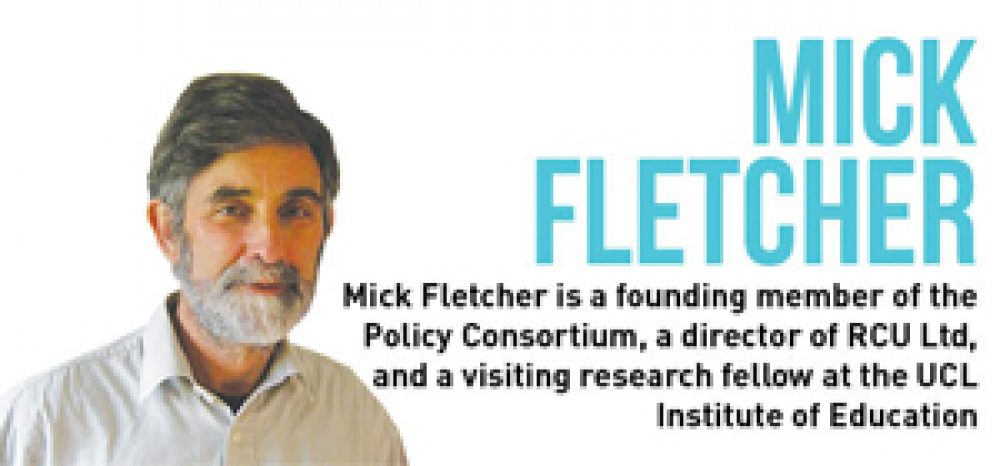After much consultation and speculation, the 157 Group announced their new name on Twitter this morning, leaving Mick Fletcher somewhat underwhelmed
Is that it, then? Is that all there is? The long awaited relaunch of the 157 group has finally arrived and the new name is… COLLAB.
I thought at first it might be an acronym – ‘ Colleges Out Looking after Learners And Business’; and then less charitably, an anagram: ‘Bollac…’. But no; it’s an abbreviation.
It’s an odd abbreviation; indeed it feels slightly strangulated but, for anyone who might have missed the connection, the group Chief Executive has helpfully explained that “Collab is collaboration”. Apparently it says so in the Urban Dictionary, which describes itself as “a cornucopia of streetwise lingo”. Should go down well with the Wiggers and Palins of this world then (look them up if you’re not cool enough to know).
Collab means collab in the sense that Brexit means Brexit, I suppose. And like Brexit, there is a strategy that we are not told too much about; apart from the fact that it will involve a lot of collaboration – new opportunities, new deals. That’s not a bad thing in itself, but it’s hardly original or unique. Is there any college that doesn’t engage with employers and its local community these days?
Collab means collab in the sense that Brexit means Brexit
It marks a big change however, from the original purpose of the 157 Group, which was to enable large and successful colleges to speak out on behalf of the sector. Sir Andrew Foster, in his landmark report, pointed out that compared with higher education or schools, FE colleges were virtually invisible. Despite excellent work by the 157 Group, AoC and other sector bodies, the problem remains just as relevant today, 10 years after he wrote it.
The writing was on the wall for this wider role of the 157 Group as soon as its new Chief Executive, Ian Pretty, announced that in his view ‘there was little to be gained’ from trying to affect policy decisions. It’s an eccentric point of view; it’s clearly not shared by the business community, who according to some estimates spend around £2 billion per year doing exactly that, with the finance sector alone spending almost £100 million lobbying government.
It’s clearly not a view shared by the various higher education mission groups or closer to home, the AELP, which is currently pushing very effectively to influence the implementation of the apprenticeship reforms. It is to be hoped that the decision of the 157 group to withdraw from this particular field of battle does not weaken the overall negotiating strength of the sector.
There may of course be some advantage in simplifying the range of organisations seeking to represent the sector. The Gazelle Group appears to have stopped pronking (use the OED definition for this one) and the weary survivors have set off on a long migration towards more fertile territory. The Chartered Institution for FE seems to provide a new home for those who just want to join an exclusive club without being burdened with the 157 Group’s founding aim of fighting for the sector and the IfL, sadly, has joined the long list of institutional mayflies that enjoy a few brief moments of summer sunshine. The way should be clear for AoC to represent colleges, without the risk of divide and rule.
I wish the Collab colleges well in these difficult times. I know many of their leaders and am confident they can adapt and thrive, despite the constant policy churn. I suspect the sector will lose, however, if their collective endeavours are more focussed on getting a good deal on their gas bills rather than a good deal for learners in the next education bill.
Mick Fletcher is a founding member of the Policy Consortium and a director of RCU Ltd








Should have employed the services of a branding expert!
When I first read ‘COLLAB’, I thought that AoC colleges were all declaring for Labour, a COrbyn Leaning LABour group, at least that would have stood for something.
COLLAB doesn’t say enough; it is truncated and abbreviated to fudge its purpose from those who view it. It isn’t collaborative, it stops short of being collaborative; is that the message we are supposed to see – ‘we no longer fully collaborate’?
FE needs more than half a thought, now more than ever.